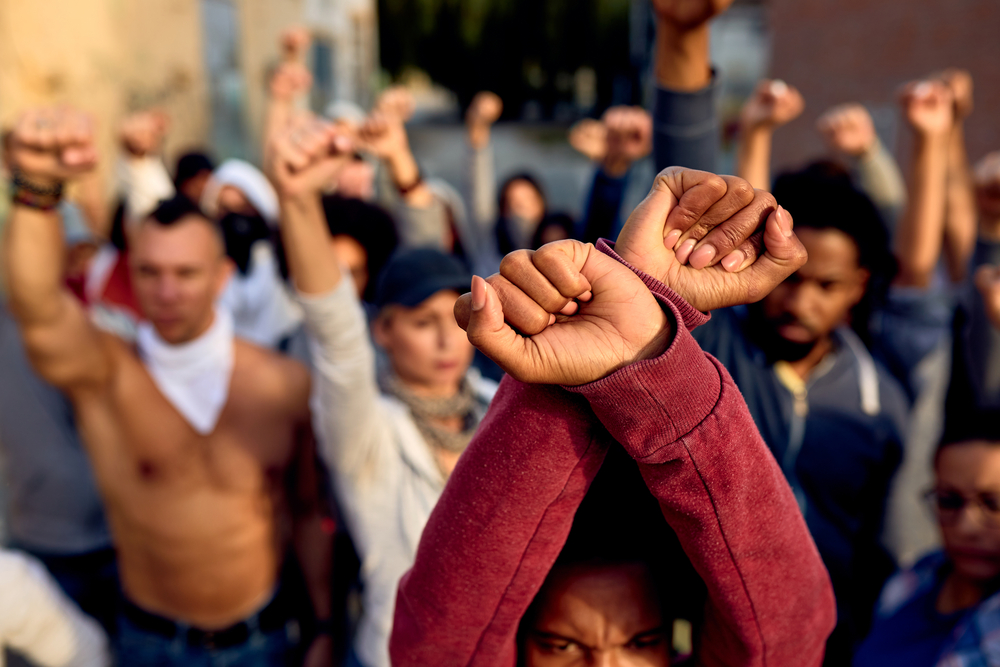In an era marked by a critical reassessment of mental healthcare practices, a new study titled “Zero Tolerance for Coercion? Historical Cultural, and Organisational Contexts for Effective Implementation of Coercion-Free Mental Health Services around the World” sheds light on the global journey towards more humane and rights-based mental health services.
The study, authored by Europe-based researchers Richard Whittington, Deborah Oyine Aluh, and Jose-Miguel Caldas-de-Almeida, navigates the complex historical, legislative, and economic landscapes that have shaped the current state of mental healthcare.
“In the last few decades, there have been important conceptual developments in the way we approach the nature and causes of mental illness, the factors involved in disabilities, and the organization of services. Important paradigm shifts took place and are still occurring, moving from a custodial paradigm to a care paradigm, then to a recovery paradigm, and now to a human rights paradigm,” the authors write.
“The goal of reducing coercion continues to face important obstacles. However, because of the increasing awareness of the risks involved in using coercive practices, the increasing knowledge of the current availability of alternatives to coercion, and the challenges associated with implementation, never have there been such favorable and fertile conditions to reach these goals. The project of a more humane and multi-faceted conception of mental health patients and their care continues to advance and is going through a particularly exciting phase.”
This groundbreaking article delves into the evolution of mental healthcare, tracing its path from historically coercive practices to the present-day emphasis on human rights and patient autonomy. The authors explore the historical context of coercion in mental health, contextual factors influencing it, and the ongoing challenges and innovations in reducing coercive practices. As the world grapples with the ethical dimensions of mental healthcare, this study offers a hopeful perspective on the progress made and the potential for a future where coercion in mental health is a relic of the past.
 Although the use of coercion in mental health sectors is still prevalent worldwide, it is essential to recognize the remarkable progress that has been made in both global and local mental health. The authors of a particular work remind us of this journey through three sections, which include the historical context of coercion in mental healthcare, the contextual factors that influence coercion, and the current issues related to coercion.
Although the use of coercion in mental health sectors is still prevalent worldwide, it is essential to recognize the remarkable progress that has been made in both global and local mental health. The authors of a particular work remind us of this journey through three sections, which include the historical context of coercion in mental healthcare, the contextual factors that influence coercion, and the current issues related to coercion.
“Throughout history, attitudes toward the use of coercive measures in the treatment of persons with mental disorders were always closely associated with the prevailing cultural, religious, and political context,” they explain. “If we go back in time, we can find, as far back as the 13th and 14th centuries, examples of places in Europe where people with mental disorders were treated humanely and integrated into the community.”
However, these human practices were unsurprisingly few and far between. Most individuals mentally suffering and anguishing were locked in cells, ‘madhouses,’ or left on the street. By the time of the Enlightenment, attitudes toward ‘mad’ people gradually started to change—people caring for the mentally ill grew less superstitious and scared, evolving into a more humanistic attitude. However, these humanistic attitudes evolved gradually. By the end of World War II, human rights rhetoric was popularized and paved the way for post-ward mental healthcare reforms across the globe. From Argentina to Lebanon, psychiatric asylums were shut down.
The authors quote Franco Basaglia, the Italian leader of psychiatric reform:
“…when we say no to the asylum, we say no to the world’s misery, and we join all the people in the world who fight for the emancipation of human beings.”
The world began to change after World War II and the push for deinstitutionalization. The Universal Declaration of Human Rights (UDHR) was created. Then, in 1948, the World Health Organization created the first official document that referred to mental health as being vital to overall health. Then, in 2008, the United Nations adopted the Convention on the Rights of Persons with Disabilities (CRPD).
“The approval of the CRPD represents a great advance in the promotion of the rights of persons with mental disorders, as it is based on a general consensus of the international community (governments, NGOs, and citizens) on the need to effectively ensure respect for the integrity, dignity and individual freedoms of persons with mental disabilities and to strengthen the prohibition of discrimination against these citizens via laws, policies, and programs that specifically meet their needs and promote their participation in society. It includes several articles especially relevant to the reduction of coercion [Article 12].”
Coercion still exists in 2023 due to various factors such as service design, national legislation and policy, economic factors, social attitudes, and even the impact of COVID-19. However, as these factors are brought to light, implementation scientists and rights advocates can work towards reducing their impact. While there is no clear roadmap towards the ultimate goal of zero coercion, there is reason to be optimistic. Although international declarations and conventions such as the CRPD have been made in the past, the world of global mental health seems to be changing for the better.
“The shift we are witnessing now is different, though, because it is underpinned and made possible by the new culture of applied science and evidence-based policy, which characterizes contemporary healthcare planning in many countries.”
The authors also found three recent systematic reviews that reveal a concentration of research concerning eliminating coercion globally. Additionally, they also find promising innovative research on Safewards and Restraint Education.
However, the authors realistically note:
“Unfortunately, innovation alone in healthcare is rarely enough to ensure a sustained change in practice over long periods of time. Most complex human systems have built-in inertia acting against new interventions, and this can only be overcome with significant effort, including both extra resources for transformation and a genuine commitment amongst those required to deploy the new intervention. Therefore, innovation requires, in addition, an understanding of implementation, which raises a whole different set of questions from those answered in a successful effectiveness trial.”
Whittington and his colleagues emphasize the significance of implementation science (IS) as a crucial method for the world to adopt new approaches and ideas that counteract cultures of coercion. They assert that IS provides practical and replicable ways to incorporate innovative ideas into daily mental healthcare practice. While IS may not be the ultimate solution to the present state of coercion in mental healthcare, their work underscores that we are in a better position globally than we were 50 years ago.
****
Whittington, R., Aluh, D. O., & Caldas-de-Almeida, J. M. (2023, October). Zero Tolerance for Coercion? Historical, Cultural and Organisational Contexts for Effective Implementation of Coercion-Free Mental Health Services around the World. In Healthcare (Vol. 11, No. 21, p. 2834). MDPI. (Link)















It’s always nice to see a light at the end of the tunnel but it still looks very far away. I was watching a video from Medicating Normal a few days ago. They were talking about how some psychiatrists are realizing and apologizing for forcing drugs. Apologies look nice but they are worthless if there is no action behind them. Some people in the video found hope and healing in it though.
https://m.youtube.com/watch?v=opwbifpfv4w
I am currently seeing a straight up pill pushing psychiatric nurse practitioner and I was trying to make headway with a functional medicine MD that is currently dragging her feet on lowering the “medications”. Right now my prospects of even slightly lowering the “medication” look dim. This morning I wondered if life was just some kind of cosmic punishment. I don’t always think that way but sometimes I can easily slip into pessimism. I know that the “medication” is pretty bad for me but I don’t know if I can handle every day life free from the psycho poison. I’ve taken various psycho pharmaceuticals for around 25 years at least. Do I have the emotional stability to handle every day life? I really don’t know. I’ve gotten pretty institutionalized. Have I reached the point of no return? If I am doomed for a psychiatric prescription cascade until the point of death then I despise my fate on this earth.
I’m sure in some ways mental “health” treatment has gotten better but something is still very wrong with the system. Money talks. A lot of money talks a lot louder. The voice of those forced to endure the whims of mental “health” are pretty much nothing compared to noise from the great economic megaphone that mental “health” is in bed with. I guess if you realize that power corrupts, then to avoid corruption you need to give up the power. If you give up enough power for long enough, you start to realize that you have no voice. This appears to be a game that cannot be won.
Report comment
Wonderful news, but…..no amount of research will amount to anything unless and until the draconian laws involving “mental healthcare” are drastically changed.
Report comment
You have traded one type of inhumanity for another. As things are now in the United States, the laws give parents of suffering young adults no rights, no information, and no peace at all. They make no effort to hold families together. You have shifted all the torture to the FAMILIES of the ill person.
Report comment
What they’re talking about is change that might happen, potentially, at some point in the distant future, only if they are granted extra resources to implement said changes.
Today, everything is exactly the same as it’s been. This article is academic talk about some possible future. The labelled patient is still being subjected to coercion and force. Families of designated patients may be suffering, but designated patients are also suffering.
Report comment
Sounds like some kind of linear progress. How to include less rugged individualist interventions and medicalized “therapies” while adding social change and community supports? If human rights means also ensuring equitable access to all basic and essential goods and services, as well as fewer mandatory, binary (& East/West) normativities, I might actually believe this is more than just another healing marketing trend. Of course, how we do “groups and social” in the real (and imaginary) worlds is vital to noncoercive mental health. I’m glad the topics/ approaches in your article are (re)emerging from the therapy closets out into the world. I just hope we don’t have to join another cult, support group, caucus or ideology collective to engage with each other in the worlds in which we are striving to exist.
Report comment
The comments inspired more hope in me than the article itself.
Report comment
“Important paradigm shifts took place and are still occurring, moving from a custodial paradigm to a care paradigm, then to a recovery paradigm, and now to a human rights paradigm”
According to who? Did anyone ask the patients if they had experienced a “care paradigm” or a “recovery paradigm”?
One of my DSM labels was “borderline personality disorder”. According to the paradigm I experienced, there is no recovery from “personality disorder”. That message was loud and clear.
I guess everything rings true as long as the people who were brutalized by coercive care aren’t interviewed. Like they say, history is written by the winners.
Report comment
Yeah I didn’t really see an alternative in there, and cognitive behavioral therapy is not coercion. It’s convincing you that your perceptions are wrong or teaching you to interrupt your thought processes so you can introspect instead. You’re coming to all the conclusions. They’re just giving you a way to create an opportunity to come to those conclusions.
Report comment
I’m a psychiatric patient, have been hospitalized, misdiagnosed, I’ve taken almost every class of medication. I’m also a psychotherapist. And while yes, there are bad and problematic practices, sometimes I sincerely don’t know what people are talking about in the comments section of MAD in America’s articles. I’ve worked in hospitals, community centers, an ACT team, and private practice. I’ve done this for 14 years. And some of these stories are like the 1% of experiences, yet they’re represented like it’s far more than that. Psychiatry can be destructive, but believe it or not it actually helps some people. I’ve had bad and good experiences, but far more slightly positive experiences and not much more than that.
Report comment